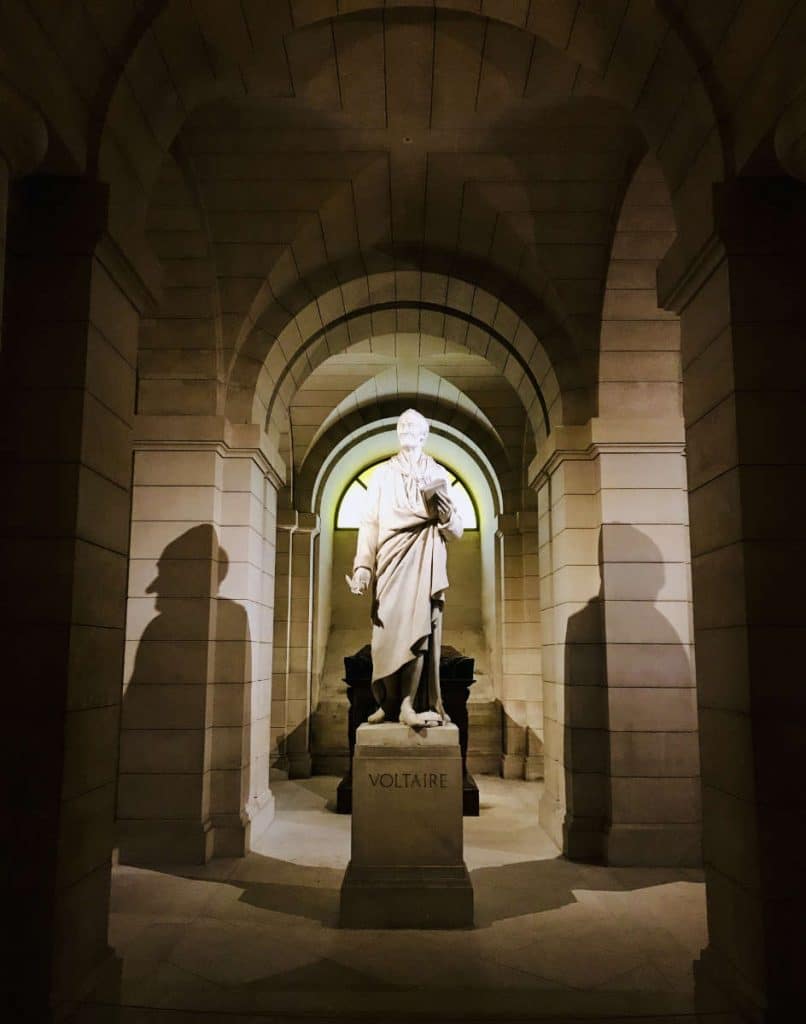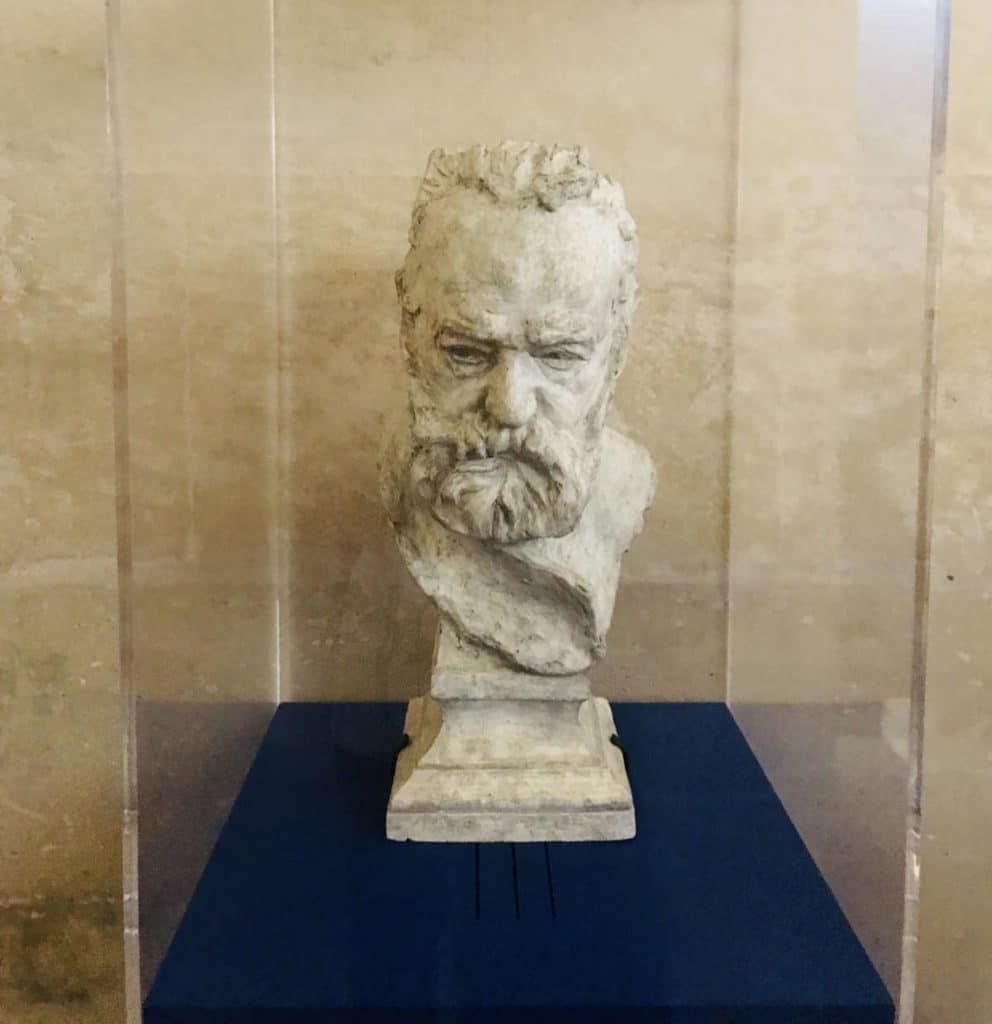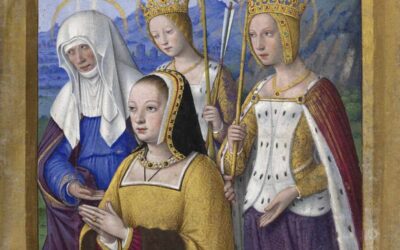If there is ever a topic that the French take seriously, it is philosophy. Shaping the way we think about morality, democracy and liberty, it is history’s philosophers and critical thinkers who have shone a light on the darkest corners of society.
From the Middle ages to the Renaissance, and Revolution to today, the concepts that we hold dear come from their great works.
Liberté, Égalité, Fraternité
Motto of France
In France, you will find philosophers regularly invited on television to discuss the major news events of the day. Starting in high school, all students in France are required to study philosophy, with the final BAC philosophy exam a required to graduate.
French philosophers have been instrumental in the development of modern philosophy, science and politics. Writers such as René Descartes, Jean-Jacques Rousseau, and Voltaire having been among the most influential people in the history of Western philosophy.
So let’s look at the most famous philosophers from France, shall we? Allons-y!
- 1. René Descartes (1596 – 1650)
- 2. Jean-Paul Sartre (1905 – 1980)
- 3. Jean-Jacques Rousseau (1712 – 1778)
- 4. Voltaire (1694 – 1778)
- 5. Simone de Beauvoir (1908 – 1986)
- 6. Jules Michelet (1798 – 1874)
- 7. Peter Abelard (1079 – 1142)
- 8. Héloïse d'Argenteuil (1092 – 1164)
- 9. Michel de Montaigne (1533 – 1592)
- 10. Albert Camus (1913 – 1960)
- 11. Michel Foucault (1926 – 1984)
- 12. Alexis de Tocqueville (1805 – 1859)
- 13. Auguste Comte (1798 – 1857)
- 14. Jean Jaures (1859 – 1914)
- 15. Simone Adolphine Weil (1909 – 1943)
- 16. Claude Lévi-Strauss (1908 – 2009)
1. René Descartes (1596 – 1650)
René Descartes was a famous French philosopher, mathematician, and scientist who invented analytical geometry, linking the previously separate fields of geometry and algebra.
I think, therefore I am
René Descartes
Descartes’s quote became a fundamental element of Western philosophy, about rationality, knowledge, and doubt. His book The Meditations on First Philosophy (1641) continues to be a standard text in philosophy classes around the world.
2. Jean-Paul Sartre (1905 – 1980)
Jean-Paul Sartre was more than just a philosopher. He was also a playwright, novelist, screenwriter, and political activist.
Born in Paris, he was also the partner of another famous French philosopher and feminist, Simone de Beauvoir. He and Simone met in university, and lived in Paris under the German Reich occupation during World War II.
Man is condemned to be free; because once thrown into the world, he is responsible for everything he does.
Jean-Paul Sartre
A liberal with sympathies to the Left, one of his most famous books is the novel La Nausée (Nausea), which explores existentialism. He also wrote extensively post-war about the working class and neglected minority groups, namely French Jews and black people.
He was awarded the 1964 Nobel Prize in Literature, which he initially attempted to refuse.

3. Jean-Jacques Rousseau (1712 – 1778)
Jean-Jacques Rousseau was actually born in Geneva, Switzerland, but would go on to become one of the most famous writers and philosophers to influence the French Revolution. It is to him that “La Philosophie entre la Nature et la Vérité” monument in the Pantheon is dedicated (featured photo above).
I prefer liberty with danger than peace with slavery.
Jean-Jacques Rousseau
He actually died in 1778, 11 years before the Revolution, but his words and beliefs about education, religion, and social contract theory would greatly influenced the revolutionaries of his time.
He was interred as a national hero in the Panthéon, in 1794, 16 years after his death.
4. Voltaire (1694 – 1778)
One of the key voices of the 1789 French Revolution, Voltaire, whose real name was François-Marie Arouet, was an outspoken advocate of civil liberties.
Judge a man by his questions rather than by his answers.
Voltaire
It was the “Age of Enlightenment”, with French writers like Voltaire were openly discussing concepts like personal happiness and civil liberties.

Like many of his time, he was a Christian and a deist, challenged orthodoxy believing in God, not as a matter of faith, but as a matter of reason.
Voltaire produced more than 20,000 letters and 2,000 books and pamphlets, producing this quantity of work while drinking 50-75 cups of coffee 50–72 a day. Among his most famous books is Letters to England and Candide.
He died at 83, and is buried at the Pantheon in Paris.
5. Simone de Beauvoir (1908 – 1986)
French writer and female activist Simone de Beauvoir did not consider herself a philosopher, but her writings expounded significantly on both feminist theory and feminist existentialism.
One is not born, but rather becomes, a woman.
Simone de Beauvoir
France would grant women the right to vote during her lifetime in 1946, due to the advocacy work of writers and philosophers like her.
One of her most famous books was the 1949 treatise The Second Sex, a detailed analysis of women’s oppression and contemporary feminism. She would win France’s top prize for writers, the Prix Goncourt in 1954.
She would live with Jean-Paul Sartre for much of her life, but they did not have children. They had an open relationship, and Beauvoir was known to be bisexual. They are buried together in the Cemetery of Montparnasse in Paris.
6. Jules Michelet (1798 – 1874)
French historian and philosopher Jules Michelet is credited with being the first European historian to use and define the word Renaissance (‘Re-birth’ in French) that represented a drastic break from the Middle Ages.
Man against nature, mind against matter, freedom against fate.
Jules Michelet
History is nothing but the story of this endless struggle.
He saw this new period in Europe’s cultural history as creating a modern understanding of humanity. His greatest work was published in 1867, the Histoire de France, which is in 19 volumes.

7. Peter Abelard (1079 – 1142)
Medieval philosopher and teacher Peter Abelard is today often referred to as the “Descartes of the twelfth century”. In Catholic theology, he is best known for his development of the concept of limbo, and his introduction of the moral influence theory of atonement.
In philosophy, he is celebrated for his logical solution to the problem of universals via nominalism, conceptualism and intent in ethics.
The beginning of wisdom is found in doubting; by doubting we come to the question, and by seeking we may come upon the truth.
Peter Abelard
However, in popular culture, he is best known for his passionate and tragic love affair with his brilliant student and eventual wife, Héloïse d’Argenteuil.
8. Héloïse d’Argenteuil (1092 – 1164)
It is said that at the time Heloise met Abelard, he was surrounded by students drawn from all countries by the fame of his teaching. Héloïse d’Argenteuil means “Héloise of Argenteuil”, as her official last name which is unknown.
Abelard was already famous when they met, and they quickly fell in love. Their love is evidenced by numerous love letters between the two, discussing love and philosophy, not as student and teacher, but as equals.
She was known to be an intelligent writer, scholar, and philosopher herself. Their letters are considered a foundation of French and European literature and primary inspiration for the practice of courtly love.
No one’s real worth is measured by his property or power: Fortune belongs to one category of things and virtue to another.
Héloïse d’Argenteuil
However, she was the ward of her maternal uncle Canon Fulbert of Notre Dame who did not approve of their illicit relationship which also resulted in a child.
They married secretly to try to appease Fulbert (married philosophers were not a thing in the 12th century), but in a tragic misunderstanding, Fulbert sent a band of men to defend her honor by castrating Abelard.
After the event, both Abelard and Heloise retired to separate monestaries, with Heloise becoming a nun and eventually elevated to the rank and political power of the female version of a bishop.
It is unclear how their letters came to be preserved and published, but their story has remained legendary. After their deaths, their bones were moved multiple times to be placed together. A statue of Abelard was even placed among the statues carved into the exterior of the Louvre.
In 1817 they were reburied in Père Lachaise cemetery in the 20th arrondissement of Paris, having considerably contributed to the popularity of that cemetery. By tradition, lovers or lovelorn singletons leave letters at the crypt even today, in tribute or in hope of finding true love.
9. Michel de Montaigne (1533 – 1592)
Known as Lord of Montaigne, he was one of the most significant philosophers of the French Renaissance.
He popularized the essay as a literary genre, merging of casual anecdotes and autobiography with intellectual insight. He was at the forefront of allowing casual doubts into his writings, showing that a philosopher need not have all the answers.
Lend yourself to others, but give yourself to yourself.
Michel de Montaigne
One of his most famous books is the massive volume Essais which contains some of the most influential essays ever written. It is said that he had a direct influence on European writers from Francis Bacon, René Descartes, Blaise Pascal, Voltaire, Jean-Jacques Rousseau, Karl Marx, Sigmund Freud, and possibly even on the later works of William Shakespeare.
10. Albert Camus (1913 – 1960)
One of the most famous French philosophers, Albert Camus was born in French Algeria to Pieds Noirs parents, eventually studying philosophy at the University of Algiers.
By the time he made it to in Paris, the Germans had invaded France during World War II. Camus joined the French Resistance where he served as editor-in-chief at Combat, an outlawed newspaper.
Freedom is nothing but a chance to be better.
Albert Camus
Philosophically, Camus’s views were considered existentialist, and significantly contributing to absurdism. His most famous work is the Stranger which is still a best seller today.
He was awarded the 1957 Nobel Prize in Literature at the age of 44, at the time the second-youngest recipient in history.
With multiple marriages and affairs under his belt, he is attributed to the romantic quote: “This is love, giving it one’s all, sacrificing everything without hope of it being returned.”
11. Michel Foucault (1926 – 1984)
Born in Poitiers, Michel Foucault went on to study philosophy at the famed University of Paris Sorbonne.
Foucault’s works explore the relationship between power and knowledge, and how control is exerted through societal institutions.
Justice must always question itself, just as society can exist only by means of the work it does on itself and on its institutions.
Michel Foucault
His most famous works include Madness and Civilization (1961) and The History of Sexuality (1976).
Foucault died in Paris from complications of HIV/AIDS. He became one of the first gay public figures in France to die officially from complications of the disease in 1984.
12. Alexis de Tocqueville (1805 – 1859)
His full name was Alexis Charles Henri Clérel, and he was born into a noble family who managed to survive the 1789 French Revolution. He would go on to inherit the Comte de Tocqueville, under the Bourbon restoration.
A French aristocrat and diplomat, he is best known for his works “Democracy in America” (1835, 1840) and “The Old Regime and the Revolution” (1856), travelling back and forth between the United States and France several times throughout his life.
The American Republic will endure until the day Congress discovers that it can bribe the public with the public’s money.
Alexis de Tocqueville
A political scientist, philosopher, and historian, he was known for analyzing the benefits and drawbacks of democracy, liberalism, individualism and modernizing the parliamentary process.
13. Auguste Comte (1798 – 1857)
Auguste Comte is a French philosopher and writer who is regarded as one of the the first philosopher of science, formulating the doctrine of positivism.
To understand a science, it is necessary to know its history.
Auguste Comte
Comte’s ideas were also fundamental to the development of sociology, treating it as a discipline in itself. Among his most famous works is the “Religion of Humanity”. He is also credited with formulating the concept of altruism.
14. Jean Jaures (1859 – 1914)
Jean Jaurès was a socialist politician who was assassinated right before the outbreak of World War I in 1914.

Having studied Philosophy at Ecole Superior in Paris, Jaurès was a committed antimilitarist and Marxist.
A Socialist minister, he tried to use diplomatic means to prevent what would become the First World War. Along with Émile Zola, he was biggest defenders of Alfred Dreyfus during the Dreyfus Affair.
When people can not change things, they change the words.
Jean Jaures
However, it was his defence of socialism that really raised his profile and why he is celebrated by the French Left even today. Many benefits that the French have today, such as employee working hours, etc. are all due to his passionate advocacy of workers’ rights and the rights of protestors.
According to some historians, his plan had been to expose then French President Poincaré’s secret deal with Russia to the Germans. With the President pushed out of the way, he believed that France and Germany would have reconciled, and he would have been able to push his reforms.
A great orator, who had much support on the left, his death on July 31, 1914 sent shockwaves through the country and destabilized the government of the day. France would invade Alsace to enter WW1 and fight against Germany on August 7, 1914.
15. Simone Adolphine Weil (1909 – 1943)
French philosopher Simone Weil is often confused with Simone Veil, the highly-regarded French minister for women’s rights who is buried in the Pantheon.
But the philosopher Simone Adolphine Weil was well known in her own right.
To be rooted is perhaps the most important and least recognized need of the human soul.
Simone Veil
Exploring philosophy with mysticism, Her book “Gravity and Grace” explored christianity and theology, and is still highly regarded when it comes to religious and spiritual matters.

16. Claude Lévi-Strauss (1908 – 2009)
Claude Lévi-Strauss was a French anthropologist and ethnologist whose work was key in the development of the theories of structural anthropology.
The scientist is not a person who gives the right answers, he is one who asks the right questions.
Claude Lévi-Strauss
A member of the Academie Française, Lévi-Strauss argued that the “savage” mind had the same structures as the “civilized” mind and that human characteristics are the same everywhere.
One of his most famous books is Tristes Tropiques making him a central figure in the structuralist school of thought.

If you enjoyed that article, you may like to read more about famous French people throughout history, as well as the best of French culture. A bientôt!





